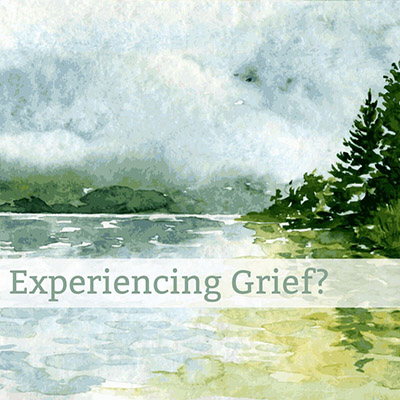Grieving begins first on a day-to-day basis as a loved one begins to lose their memories and functions.

When a loved one has dementia, the grieving process starts long before the actual passing. Grieving begins first on a day-to-day basis as a loved one begins to lose their memories and functions. It may even begin the day you learn of the dementia diagnosis.
As the person with dementia's capacity declines, those feelings of loss can become more profound. Even though you want to do everything you can to slow down the progression of the disease, there is nothing you can do. This can make you feel hopeless or out of control.
While the initial grieving process – grieving the loss of the person you once knew while they are still alive – is different for everyone, you may still experience some of the typical pattern of grief.
1. Denial
2. Anger
3. Bargaining
4. Depression
5. Acceptance
It may also feel like your grief is a never-ending roller coaster, as you may pass through the mourning cycle many times before your loved one actually passes away. And your feelings will be unpredictable. You may feel angry one day and sad the next. There will be moments of happiness in there too, and that may even cause feelings of guilt for feeling happy while a loved one continues to suffer.
After your loved one passes, you will grieve and mourn again. However, it is common for surviving spouses and family members to feel a sense of relief that their loved one is no longer suffering and that this chapter in their own lives has closed. Unfortunately, this also leads to survivor's guilt because people feel guilty that they now feel relief from the burden of having to care for someone who has end-stage dementia.
Ways to Manage Grief
First, do not try to suppress uncomfortable feelings. Instead, embrace your feelings and know that sadness and grief will be a part of your life.
Know that your grief experience is unique. No one else knows exactly how you feel, and you can't predict exactly how you will respond. It would be nice to be able to know exactly when your grief will end, but that is impossible to know too.
Make sure you talk to someone and share your feelings. This may be a trusted friend or family member or even a counselor, therapist or minister.
Don't isolate yourself. It may be hard to muster the energy to socialize at this time, especially as you need to spend more time caring for your loved one. Spending time with friends can help you to be a better caregiver.
Take it one day at a time. Give yourself time to heal, it will be a long process. Know that eventually your grief will start to subside, and you will start to feel happy.



